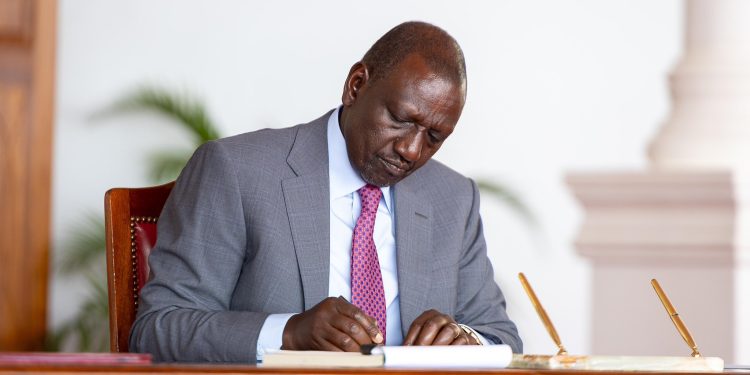I once received a job offer from a non-governmental organization that operated in nearly twenty of Kenya’s forty-seven counties. The organization was headquartered in Kisumu but had programs spread across counties and sub-counties. I was tasked with overseeing HIV prevention and community health programs in Bondo and Rarieda constituencies within Siaya County.
At the time, I thought I was simply taking another job in public health. What I did not know was that this experience would challenge my assumptions, stretch my empathy, and permanently change how I saw Kenyan society.
It was through this assignment that I first came face-to-face with the diversity of people that make up what public health calls Key Populations, a term that replaced the older, stigmatizing label Most at Risk Populations (MARPs).
These are groups with higher exposure to HIV due to social, economic, and behavioral vulnerabilities: female sex workers, men who have sex with men (MSM), people who inject drugs (PWID), and fisherfolk, men and women whose livelihoods depend on the lake economy.
This work demanded not only medical understanding but also social understanding.
Understanding the Work
Our interventions revolved around three pillars. Behavioral interventions involved counseling, peer education, and encouraging safer sexual behavior.
Biomedical interventions covered testing, treatment, and adherence support.
Structural interventions addressed the social and economic realities, poverty, unemployment, stigma, and gender inequality that drove vulnerability in the first place.
Also Read: Kenya Has Officially Recognized Intersex as a Third Gender – What This Means
This work took me to villages, islands, and beaches that are often hidden within communities, invisible in national conversations.
It was in these rural spaces that I first encountered MSM, not in cosmopolitan Nairobi, but in the quiet fishing towns of Bondo and Rarieda.
I had, of course, heard of gays and lesbians before, but never truly understood the lived realities of men in small villages leading double lives, dating women while secretly engaging in same-sex relations. The contradiction was jarring, but the silence around it was even louder.
The Hidden Lives Around Us
What struck me most was not the existence of these men, but our collective refusal to acknowledge them.
Many were young, barely in their twenties, some dating or married to women, yet seeking intimacy with other men. In public meetings, if the subject arose, it was met with laughter, denial, or condemnation.
This is where the Luo community was many years ago, deep in denial about the existence of HIV/AIDS, dismissing it as chira, a curse rather than a disease.
People spoke of “others” as if they were aliens, not realizing that these “others” were their own sons, brothers, or husbands.
I began to understand that silence, our cultural, moral, and religious silence, was itself a public health threat.
A similar pattern emerged among female sex workers, many of whom sold sex not by choice but necessity.
Some were single mothers supporting children; others were escaping abuse. Conversations with them revealed both fear and courage.
They knew their risks but often had no real alternatives. Every encounter stripped away another layer of ignorance and taught me that morality cannot replace public health.
Reflections on a Changing Society around LGBTQ
Over the years, Kenya’s vocabulary and visibility around sexuality have evolved.
MSM gradually gave way to gay men, and the broader LGBTQ+ community began gaining recognition in public discourse, academia, arts, media, and even within policy spaces.
Today, Kenya has visible LGBTQ+ individuals in the creative and public space. One notable example is the family of Professor Anyang’ Nyong’o, whose daughter Zawadi Nyong’o (sister to actress Lupita Nyong’o) has publicly come out as a member of the LGBTQ+ community and introduced her partner and child on social media.
Professor Nyong’o, a man raised in the conservative traditions of Seme, demonstrates that it is possible to hold on to cultural roots while embracing compassion and understanding.
Why We Must Talk About It
We cannot continue to pretend that this conversation does not exist. Silence does not preserve culture; it preserves disease, stigma, and fear.
When men lead double lives, married at home but secretly involved with other men, they put their partners and families at risk.
Because of stigma, many in key populations avoid healthcare facilities for fear of being judged or outed.
As a result, they miss out on testing, treatment, and counseling. The consequences ripple far beyond individuals, affecting entire communities.
According to the National Syndemic Disease Control Council (NSDCC, 2022), about 1.4 million people live with HIV in Kenya.
Prevalence among female sex workers ranges between 4.8% and 16%, while among MSM it stands around 8.3% (The Global Fund, 2023). The national adult prevalence is 4.0% (Kenya Ni Home, 2025).
At the county level, Siaya’s HIV prevalence is 9.75%, while Kisumu’s is 10.96% (Kenya Data & Statistics, 2025), among the highest nationwide.
These figures highlight a grim truth: denial is not protection; it is, in fact, exposure.
The Legal and Policy Foundations
Kenya’s Constitution (2010) provides a clear and unequivocal legal foundation for equality and access to healthcare.
Article 27: Every person is equal before the law and has the right to equal protection and equal benefit of the law.
Article 43(1)(a): Every person has the right to the highest attainable standard of health, including healthcare services.
Article 45: Protects the dignity of family life and, by extension, safeguards individuals from discrimination within relationships.
Kenya’s AIDS Strategic Framework (2019/20–2024/25) and HIV Prevention Revolution Roadmap 2030 emphasize rights-based, inclusive health programming, calling for equitable access for key populations.
Also Read: Catholic Church Allows Gay Men to Become Priests
Internationally, Kenya is party to the International Covenant on Economic, Social and Cultural Rights (ICESCR), which guarantees the right to health, and the Convention on the Elimination of All Forms of Discrimination Against Women (CEDAW), which mandates equal access to health and social services.
Yet contradictions persist. Sections 162–165 of the Penal Code criminalize consensual same-sex relations, creating a dangerous tension between law, morality, and constitutional rights.
This criminalization drives fear, pushes communities underground, and undermines Kenya’s own public health and human rights commitments.
The Cost of Silence
The Constitution guarantees health and equality for all, yet stigma and discrimination often deny these rights in practice. Many LGBTQ+ Kenyans avoid clinics for fear of arrest or humiliation. Some health workers, untrained in sensitivity, turn them away.
Public health data is clear; stigma and discrimination remain major barriers to HIV prevention and treatment.
When people hide, infections rise. When care is denied, the epidemic grows. Silence, therefore, is not neutral; it is fatal.
Facing the Truth
The goal is not to promote any lifestyle but to affirm life itself. Kenya is not a religious state; it is a constitutional democracy. Our laws, not our fears, should guide how we treat one another.
We must acknowledge that key populations and LGBTQ+ individuals are not outsiders; they are part of the Kenyan fabric.
Our sons, daughters, and neighbors are part of this community. Ignoring them does not make them disappear; it only deepens their suffering and our collective vulnerability.
Until we begin to speak openly, anchored in compassion, grounded in the Constitution, and guided by evidence, we will continue to fight not just HIV, but the greater epidemic of denial.
The views expressed in this opinion piece are the authors’ own and do not represent The Kenya Times’ editorial position.
Follow our WhatsApp Channel and X Account for real-time news updates.


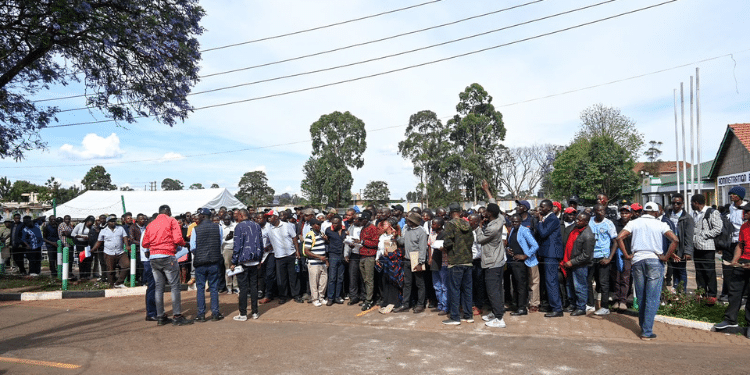
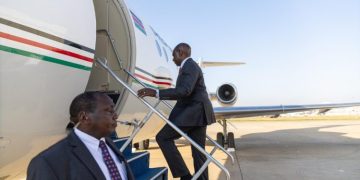
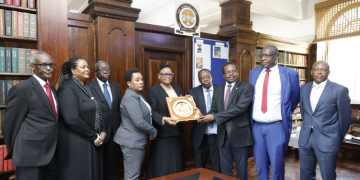

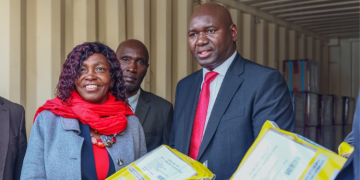
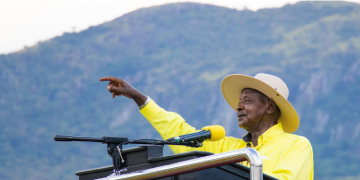








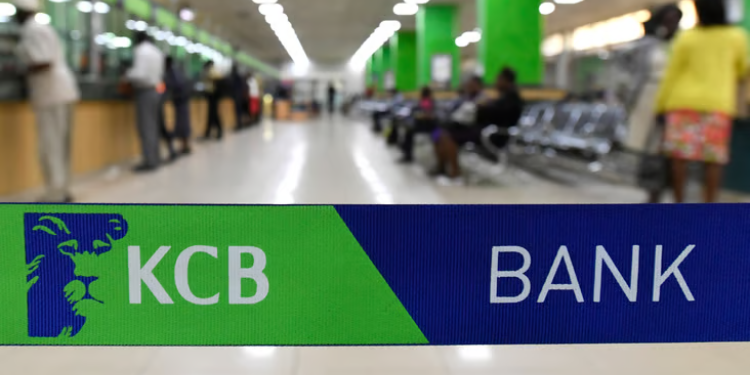
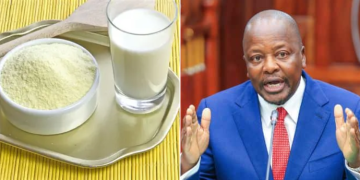

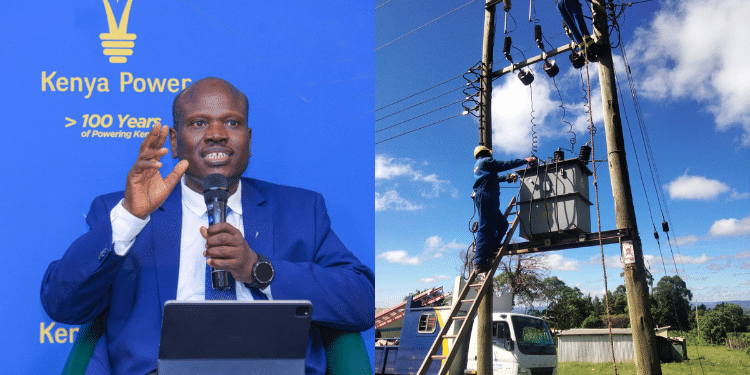
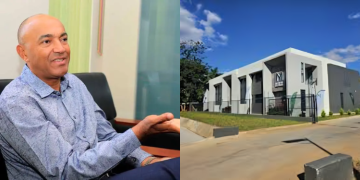




























![Senator Allan Chesang And Chanelle Kittony Wed In A Colourful Ceremony [Photos] Trans Nzoia Senator Allan Chesang With Channelle Kittony/Oscar Sudi]( https://thekenyatimescdn-ese7d3e7ghdnbfa9.z01.azurefd.net/prodimages/uploads/2025/11/Trans-Nzoia-Senator-Allan-Chesang-with-Channelle-KittonyOscar-Sudi-360x180.png)




















